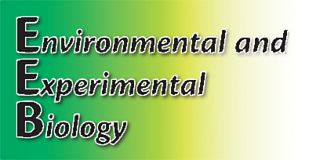
On-line: ISSN 2255–9582

| Faculty of Biology, University of Latvia | ||||||

|
Hard copy: ISSN 1691–8088
On-line: ISSN 2255–9582 Environ Exp Biol (2021) 19: 209–218
|
|||||

|
About the Journal | Retractions | Open Access | Author Guidlines | Current Issue | Archive |
|
Environmental and Experimental Biology |
Environ Exp Biol (2021) 19: 209–218 |
Human breast milk is a prominent source for microbiota development in the infant gastrointestinal tract. It is reported that probiotics in breast milk have a major role in the protection of the newborns and as well as infants when compared to formula milk/cow milk fed babies. The aim of the present study was to isolate and identify the probiotics from human breast milk. Fifty healthy women during the first week of postpartum were selected randomly and milk samples were collected aseptically. The samples were screened for probiotic microflora using microbiological methods, including serial dilution and plating on de Man-Rogosa-Sharpe agar. The isolates suspected to be probiotics were selected for morphological, biochemical and molecular characterization and bioinformatics analysis. They were further evaluated for their probiotic potential. Mixed microflora were found: commensal microorganisms like Streptococcus spp., Staphylococcus spp. and Lactobacillus spp. Twelve Lactobacillus spp. were isolated from breast milk, which were confirmed for genus and species by molecular methods and bioinformatics. These Lactobacilli were found to be acid resistant, tolerant to 0.3% bile and had ability to inhibit the growth of food-borne pathogens. A diversified bacterial population was present in human breast milk, and it was also found to be a rich source for beneficial probiotics, particularly Lactobacillus spp.